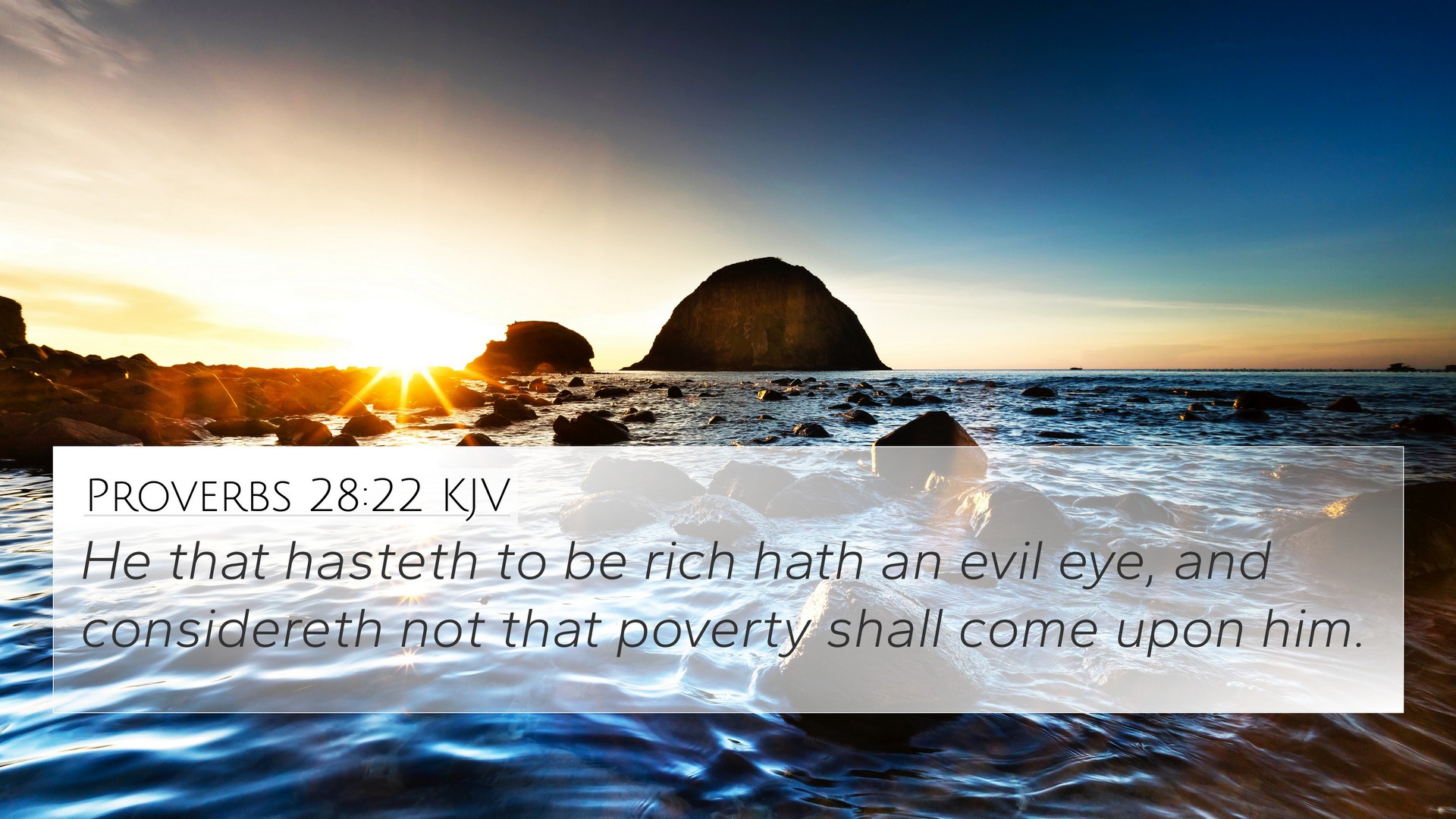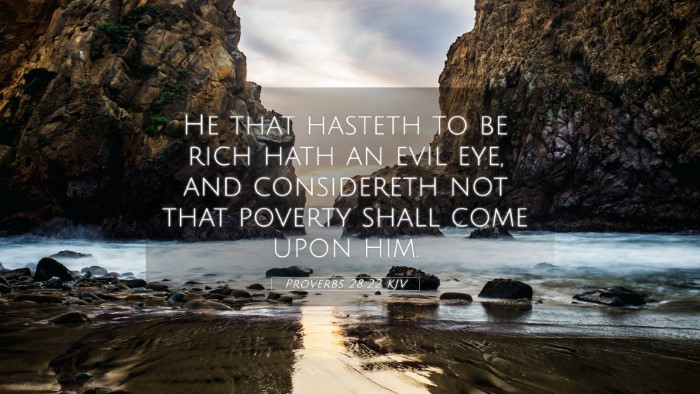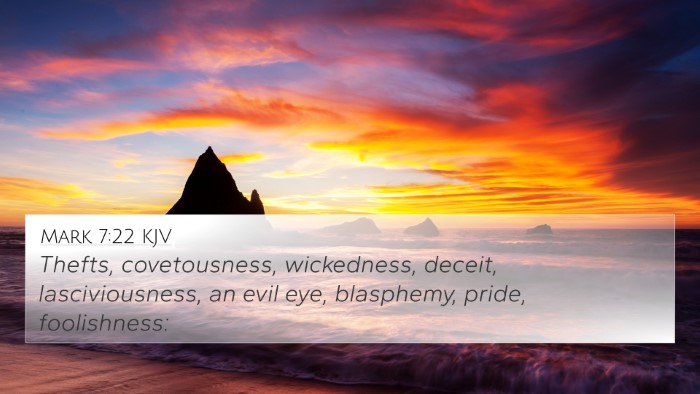Understanding Proverbs 28:22
Proverbs 28:22 states: "A man with an evil eye hasteth after riches, and knoweth not that want shall come upon him." This verse highlights themes of greed, foolishness, and the misguided pursuit of wealth. Combining interpretations from notable public domain commentaries, we find rich insights that deepen our understanding of this scripture.
Verse Analysis
This verse presents a stark warning against the dangers of greed. Matthew Henry emphasizes that the "evil eye" signifies a covetous and envious person, driven by an insatiable desire for wealth. He notes that such a person hastens or rushes after riches, indicating a lack of patience and the foolish pursuit of material gain.
Albert Barnes expands on this idea by explaining that the one who hastens after riches is often blinded to the reality of life's true priorities. This greed may lead to financial loss and spiritual emptiness, as the pursuit of wealth can divert one from moral and ethical responsibilities.
Adam Clarke draws attention to the consequences of this reckless pursuit. He indicates that the "want" that comes upon the greedy individual may not only refer to material lack but can also symbolize a deficiency in spiritual and emotional fulfillment. This lack results from neglecting more important aspects of life in the relentless chase for wealth.
Thematic Connections
Proverbs 28:22 fits within broader biblical themes, particularly regarding wealth and its dangers. Here are some key interpretations and connections as seen through various commentaries:
- Greed and Discontentment: The idea that rushing for wealth leads to eventual want is a recurrent theme in the Bible, echoing in verses such as 1 Timothy 6:10, where the love of money is identified as a root of all evil.
- Divine Provision: Trusting in God's provision is a theme evidenced in Matthew 6:31-33, where believers are called to seek first the kingdom of God and not worry about material needs.
- The Temporary Nature of Riches: Verses like Proverbs 23:4-5 remind us of the fleeting nature of wealth, reinforcing the message that material pursuits can lead to spiritual impoverishment.
- God's Judgment on Greed: James 5:1-3 speaks about the miseries that come upon the rich who hoard wealth and neglect just practices.
- The Value of Wisdom: Proverbs consistently juxtaposes wisdom against folly, and in Proverbs 4:7, the pursuit of wisdom is deemed above riches, highlighting the futility of chasing wealth without wisdom.
- Contentment: Philippians 4:11-13 presents the importance of being content in all circumstances, contrasting sharply with the greed indicated in our primary verse.
- Righteous Gains: In Proverbs 10:22, we see that the blessing of the Lord brings wealth without trouble, showing a contrast with the consequences of greed.
Cross-Referenced Themes
This verse encourages a comprehensive view through biblical texts, spurring us to seek out connections and deeper meanings across scriptures. Here are specific ways to approach cross-referencing:
- How to find cross-references in the Bible: Utilize a Bible concordance to locate themes related to greed and wealth.
- Identifying connections between Old and New Testament: Look at how Old Testament proverbs on wealth relate to New Testament teachings on contentment and greed.
- Diving into detailed cross-references between Gospels: Consider how different Gospel accounts reflect themes of wealth and the heart's disposition.
- Links between the Prophets and Apostolic teachings: Examine prophetic admonitions against greed and how they resonate with teachings from apostles.
The Importance of Cross-Referencing
To gain a fuller understanding of biblical themes, cross-referencing provides depth and context. The tools for Bible cross-referencing like concordances or cross-reference guides form a solid foundation for scholars and laypeople alike seeking comprehensive insights.
By analyzing Proverbs 28:22 through the lens of surrounding scriptures, we uncover a robust narrative about human tendencies towards materialism, God's call to righteous living, and the ultimate futility of pursuing riches without acknowledging God’s presence in our lives.
Conclusion
Thus, Proverbs 28:22 serves as a poignant reminder of the risks involved in chasing after wealth without wisdom. By cross-referencing with other important verses, believers can cultivate a holistic understanding of what true wealth means in the context of a faithful life.
Key Cross-References
- 1 Timothy 6:10
- Matthew 6:31-33
- Proverbs 23:4-5
- James 5:1-3
- Proverbs 4:7
- Philippians 4:11-13
- Proverbs 10:22











